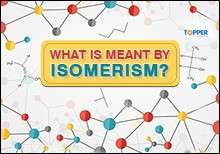12 Ways To Manage NEET Preparation And Board Exams Together

NEET preparation may not be easy for you, but it is manageable with the right learning approach.To add to the challenge, you have to prepare for your board exams along with NEET.
By Topperlearning Expert 22nd Apr, 2020 | 11:26 am
ShareNEET preparation may not be easy for you, but it is manageable with the right learning approach. To add to the challenge, you have to prepare for your board exams along with NEET. It is normal to be intimidated when you have to balance the revision of topics in the NEET 2020 syllabus and the board exam syllabus. Did you know that there are common topics which you can manage for effective revision? Study strategies and time management tactics will gradually reduce your worries and get you ready for both crucial exams.
When you are trying to hit two targets with one bullet, you must use all the help that’s available. And, you can utilise the online learning resources for NEET exams 2020 and the board exams which are readily available for self-study. Let’s look at some of the effective ways used by successful NEET aspirants to manage self-study for achieving top scores in NEET and the board exams using the available resources.
12 Useful Tips To Prepare For NEET And Board Exams
- Focus on common topics of your board and NEET
The good news is that there are numerous topics which are common in your board exam syllabus and the NEET syllabus. Study those topics thoroughly to make optimum use of your time. When you focus on revising the common syllabus topics for the two critical exams, your NEET preparation becomes easy. After all, part of your NEET revision is already covered along with the board exam syllabus revision. - Prioritise NEET syllabus topics
Your priority should be NEET topics. It is likely that your teachers may have already explained many of these topics in class. With time, you may or may not remember the entire explanation given by your teachers. So, during self-study, watch video lessons to recapitulate the concepts that you may have forgotten. After revising the NEET syllabus topics, you will also feel more comfortable when you sit to study the topics in your syllabus. - Utilise question banks and expert solutions
If you have grasped the concepts during your NEET exams 2020 revision, you should be able to tackle subjective questions based on those concepts in your board exams. To prepare for your exams, you can practise calculation-based problems from NEET sample papers and from TopperLearning’s sample papers based on the board exam pattern. Previous years’ question papers with solutions for NEET and board exams can also be useful in your efforts to ace your exams. - Revise Class 11 topics for NEET by using synopses and formulae sheets
Several advanced concepts which are covered in your NEET 2020 syllabus are based on your Class 11 syllabus. During revision, keep your Class 11 formulae sheets handy. Revise those formulae to relearn calculation-based questions for NEET. To quickly brush up your lessons, read the synopsis of Class 11 chapters which are available online. - Use online learning resources for revision
For revision of Class 11 and Class 12 topics, you can revisit your lessons through NCERT solutions for Class 11. The model solutions for NCERT textbook questions by subject experts will give you the necessary support for solving textbook questions during self-study. Concept videos, previous years’ question papers and revision notes can also be useful for topics based on your NEET syllabus and Class 12 exam syllabus. Also give mock tests and weekly tests to keep revising concepts and eradicate errors. - NCERT books are important for both exams
Among the recommended books for NEET preparation are the NCERT textbooks for Physics, Chemistry and Biology. The NEET 2020 syllabus is based on concepts covered in NCERT books. Also, for Class 12 students, studying the chapters from the NEET syllabus and the board exam syllabus is easier with chapter-wise online NCERT solutions for Class 12. Today, NCERT solutions are available for Class 12 Physics, Class 12 Biology and Class 12 Chemistry.
When you learn from NCERT textbook solutions, you get the double benefit of preparing for two exams. You can write and practise the NCERT solutions from Physics to grasp the methods for solving numerical type questions. Also, revise topics such as the periodic table, reproduction etc. with the online NCERT solutions for Class 11 and Class 12 Science subjects. - Keep realistic study goals
Another important thing to remember is to have practical goals. You may plan to study from one textbook but end up sitting with several textbooks. So, it is true that there are several good textbooks for revision NEET revision and board exam revision. However, studying one chapter from more than one textbook at a time can confuse you. It would be wise to hold on to one textbook such as the preferred NCERT textbooks. - Avoid too many textbooks
Only if you are extremely confident that you are thorough with NCERT questions and answers, move on to other books. If you revise the concepts from NCERT textbook solutions, you may not need other textbooks for revising Biology and Chemistry lessons. For practising additional numerical questions in Physics, you can use other textbook solutions. - Important Topics for NEET
Below are some important Science topics that you can refer for NEET preparation
Physics
Chemistry
Biology
Mole Concept
Coordination Chemistry
General Organic Chemistry
Periodic Table
Ecology & Environment
Basics of Biotechnology
Cell Biology
Genetics
Physiology of Animals & Plants
Reproduction
- Time management for NEET exams 2020
Your preparation for any competitive exam gets better and better with revision. For NEET, you need to make time for ample revision. Instead of blindly following the NEET 2020 syllabus topics, you have to identify the topics which are your strength areas and the ones which are your weak areas. To find such topics, you can take the online mock tests or weekly tests for NEET. - Recognise your strengths and weaknesses
While giving the mock test, you may stumble upon topics that tend to bring you to a halt with nervousness. Note down those topics during test result analysis. Before you sit down to revise, create a clear study plan and revision schedule. During your NEET preparation, make sure to set aside more time for revising topics that you find difficult. - Be flexible with your study plans
If you missed a planned revision session, you should still continue with your study schedule. Don’t get stressed. Remember, you have the flexibility to alter your study plan according to your other commitments. Move the session to the next available time slot in your schedule. In case you cannot study further without completing the missed chapter, complete the missed chapter. Try to find extra time in your schedule to complete the planned revision of all the topics within your set deadlines.
Both board exams and NEET exams 2020 have equal potential to stress you out. And when you are preparing for these two important exams of your life, the stress doubles up. Well, you don’t need to worry much if you stay focussed on fulfilling your study goals with effective time management. We hope that this article gave you some insight on preparing effectively for NEET and your board exams.
To make it easier for students to plan their NEET and board exam studies according to their schedule, our experts have designed comprehensive study packs at TopperLearning.
For more details about TopperLearning’s NEET packages, NEET 1 year program 2021, NEET 2 years program 2022 call our academic experts on 1800-212-7858.
|
Physics |
Chemistry |
Biology |
|
· Optics |
· Mole Concept · Coordination Chemistry · General Organic Chemistry · Periodic Table
|
· Ecology & Environment · Basics of Biotechnology · Cell Biology · Genetics · Physiology of Animals & Plants · Reproduction |
Important Resources
- Education Franchisee opportunity
- NCERT Solution
- CBSE Class 9 Mathematics
- NCERT Solutions for class 10 Science
- Sample Papers
- CBSE Class 9 Science
- NCERT Solutions for class 10 Maths
- Revision Notes
- CBSE Class 10 Hindi
- CBSE Class 10 English
- CBSE Class 10 English
- CBSE Class 10 Social Studies
- CBSE Class 10 Science
- CBSE Class 10 Mathematics
- Career In Science After 10
- Career In Commerce After 10
- Career In Humanities/Arts After 10
- NCERT Solutions for Class 10
- NCERT Solutions for Class 11
- Business Studies Class 12 CBSE project





